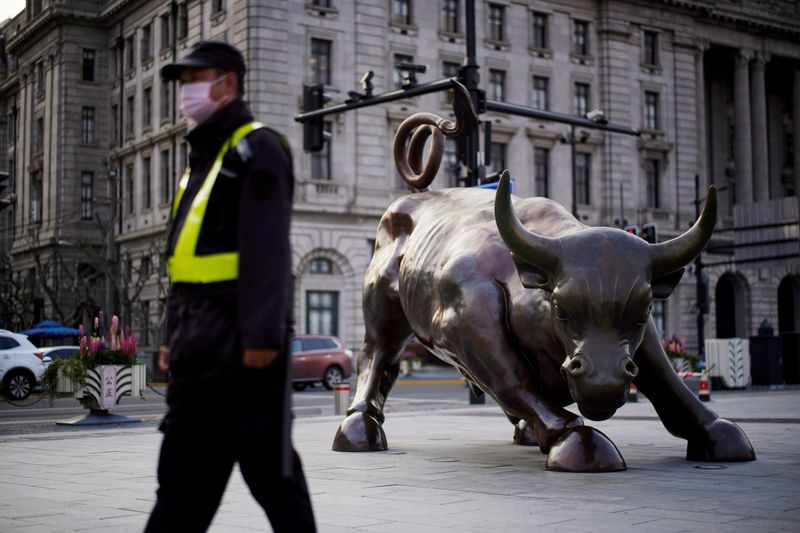Investing.com — Most Asian stocks fell further Wednesday on continued fears of rising U.S. interest rates, while Chinese shares rallied on positive industrial earnings data and promises of more stimulus.
Regional markets took a weak lead from Wall Street indexes, which tumbled in overnight trading as markets continued to worry about a barrage of aggressive signals from the Federal Reserve.
Rises were a major source of pressure on heavyweight technology stocks, while also draining capital from broader risk-driven assets. Fed officials said rates could rise at least once more this year, and likely will.
Sentiment toward U.S. stocks was also hurt by growing fears of a government shutdown, which analysts warn could dent already sluggish economic growth.
Japan was among the worst performers in Asia that day, down 0.6%, while South Korea lost 0.3%.
Australia’s fell 0.3% as data showed consumer inflation grew as expected in August, potentially leading to an aggressive outlook for the Reserve Bank. But optimism about China helped stem further losses in the index.
Futures for the Indian index pointed to a flat open after the index fell sharply from record highs earlier this month. But the Nifty was one of the few Asian indices to trade positively in September.
Rising US interest rates do not bode well for equity markets as they constrain global monetary conditions and also draw capital away from risk-driven assets. This trade caused most Asian markets to post steep losses over the past year.
Chinese stocks are performing better thanks to positive data and stimulus talks
But Chinese shares were the only outperformers in Asia on Wednesday. The and indexes rose 0.4% and 0.3% respectively, while the Hong Kong index rose 0.8%.
Data showed China’s economy rebounded strongly in August, narrowing the year-to-date decline. The data provided some optimism about a Chinese economic recovery ahead of key figures due later this week.
Sentiment towards China was also helped somewhat by promises of more monetary stimulus from the People’s Bank of China. The PBOC said it will intensify measures to increase private investment in the country, which is struggling to reach pre-COVID-19 highs.
Yet Chinese stocks also fell significantly in September, trading close to their 2023 lows amid growing concerns about a collapse in the country’s property market.
Concerns about China had also plagued regional markets through September, as the country is a major trading partner of most Asian countries.


